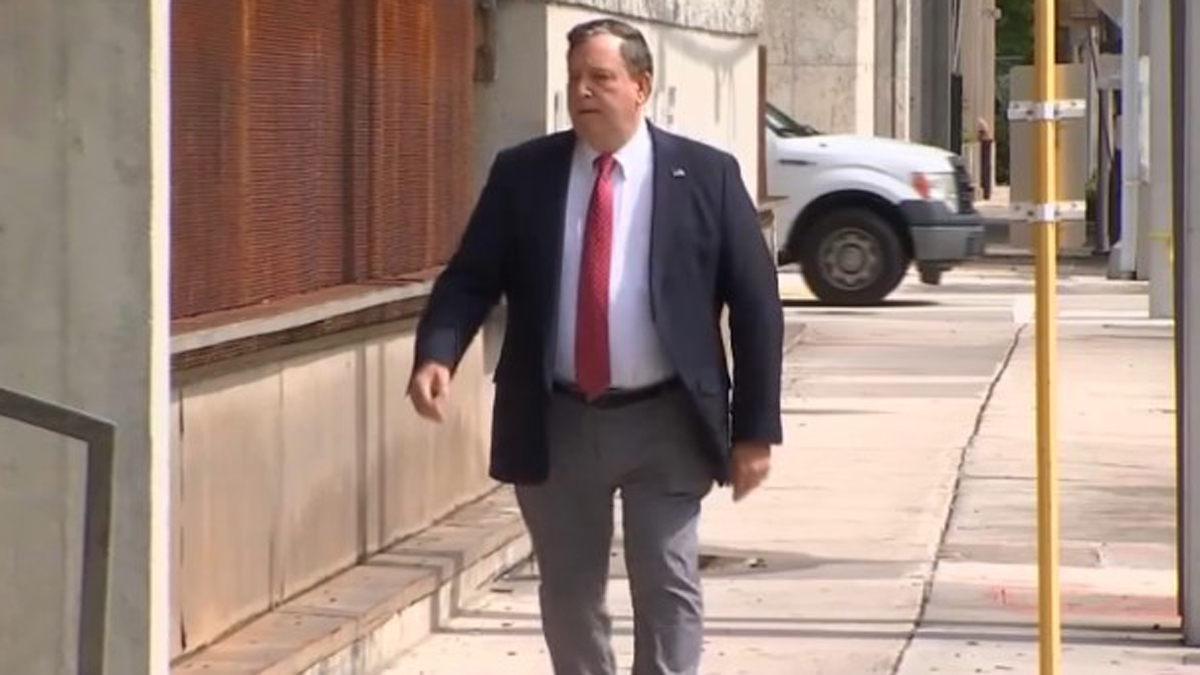City of Miami clarifies who’s responsible for $63M Carollo verdict, who pays legal fees – NBC 6 South Florida
Miami won’t be on the hook for a $63 million jury verdict against Commissioner Joe Carollo, and his legal expenses are being paid through insurance, city officials said Wednesday.
A federal jury last week found Carollo liable for violating the First Amendment rights of Little Havana business owners William Fuller and Martin Pinilla.
Fuller, the owner of the Ball and Chain restaurant and club, and Pinilla claimed Carollo weaponized the city’s police and code enforcement departments to shut down several of their businesses in Little Havana because they supported his political opponent.
The jury sided with Fuller and Pinilla, and awarded them more than $63 million in damages.
A jury has found longtime Miami Commissioner Joe Carollo liable in a federal civil lawsuit brought by two businessmen who accused him of trying to destroy their businesses as political retaliation. NBC6’s Laura Rodriguez reports
In a statement Wednesday, fellow Miami Commissioner Manolo Reyes said the city will not be responsible for paying the massive verdict.
“The City of Miami has NO financial responsibility for the verdict in Fuller v. Carollo because the City was not a party to the litigation,” Reyes said. “In addition, there is a statute that prohibits the City of Miami from paying a judgment for intentional conduct, which is how the jury found.”
Carollo, in an interview with NBC6 on Tuesday, said there’s no way he can pay the judgment.
“I would if I would have been a crooked elected official that had all kinds of money. But unfortunately for them, and they know it, I’ve been an honest elected official, that I don’t have that kind of money and they know it,” he said.
It was reported during the trial that the city had already paid about $2 million of Carollo’s attorney’s fees. In his interview with NBC6, Carollo said that the city had probably paid another $1 million or more.
“Joe Carollo has been a money-making machine for the city of Miami,” Carollo said. “Even if, let’s say for the next 20 years the City of Miami has to pay $2 million, $3 million in attorneys fees for me, it’s a hell of a deal to have me as an elected official cause I bring them millions more in new ideas that generate recurring revenue than anything they’re gonna have to pay.”
City of Miami commissioner Joe Carollo called the $63 million settlement absurd after a federal jury found him liable in a political retaliation lawsuit.
Reyes said the legal expenses are not being paid by taxpayers, but instead are being paid through an insurance policy. He added that the city has to cover the legal costs under state law.
“The City of Miami must continue paying the legal expenses of the appeal process because it is established in the Florida Statutes and precedents set by the Florida Supreme Court,” Reyes’ statement read. “If the City of Miami refuses to continue paying Commissioner Carollo’s legal expenses, he may seek reimbursement of attorney’s fees and sue for indemnification if he later prevails in Fuller v. Carollo.”
Carollo insisted he did nothng wrong and said he plans to appeal, and ultimately believes the verdict will be overturned.
“I have done nothing wrong, nothing was shown, not one person could say nor could they show, on any individual that I ordered anybody to do anything wrong. Sadly, the jury never got to hear from so many of the people who are residents in Little Havana that didn’t get to sleep at nights,” Carollo told NBC6. “I have no doubt, once it’s appealed, will be overturned.”
In a separate statement Wednesday, the City of Miami said Carollo’s legal expenses will continue to be covered by the “excess carrier” coverage.
“We believe elected officials are entitled and afforded to a defense until the completion of the appellate process,” the city’s statement read. “We are optimistic that the appeals process will be favorable for District 3 Commissioner Joe Carollo. The City is cognizant that the final outcome of this civil litigation could have a material impact on the other active litigation involving these same plaintiffs and the City of Miami. The necessity to appeal this jury verdict is significant, in that it ensures the City’s ability to enforce our code, protect our quality of life, and guarantee the safety and well-being of our residents and visitors.”



